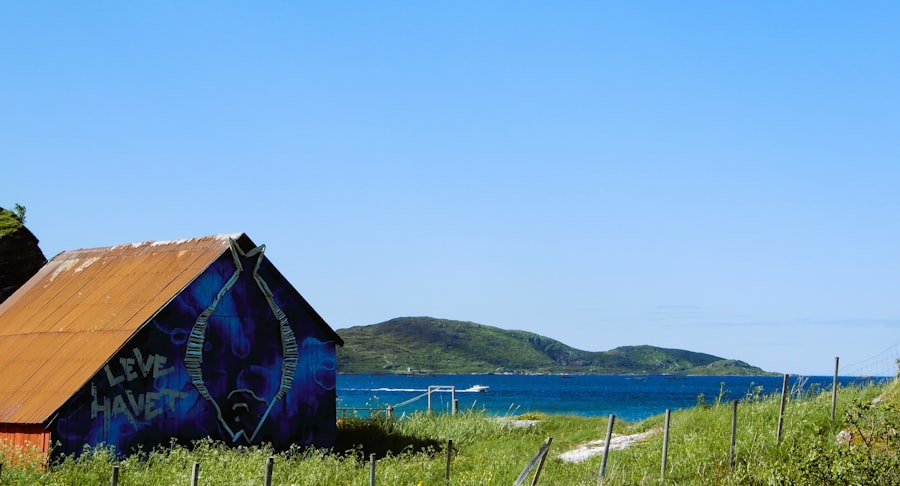Norway, known for its stunning landscapes and high quality of life, has become an attractive destination for individuals seeking new opportunities. The country’s visa and immigration system is designed to facilitate the entry of foreign nationals while ensuring that the needs of its citizens and economy are met. As a member of the Schengen Agreement, Norway allows for free movement within the Schengen Area, but it also maintains its own specific regulations and requirements for those wishing to reside or work in the country.
Understanding this system is crucial for anyone considering a move to Norway, as it encompasses various types of visas, permits, and regulations that govern the immigration process. Navigating Norway’s immigration landscape can be complex, given the multitude of options available and the specific criteria that must be met. From work permits to family reunification visas, each category serves a distinct purpose and is subject to its own set of rules.
This article aims to provide a comprehensive overview of Norway’s visa and immigration system, detailing the types of visas available, the application process, and the requirements for obtaining them. By shedding light on these aspects, prospective immigrants can better prepare themselves for their journey to Norway. Book Your 1-Hour Relocation Strategy Session
Summary
- Norway’s visa and immigration system is designed to attract skilled workers, students, and family members to the country.
- Types of visas available for Norway include tourist visas, work visas, student visas, and family reunification visas.
- Requirements for obtaining a visa for Norway may include a valid passport, proof of financial means, and a letter of invitation or admission from a Norwegian institution.
- The process of applying for a visa for Norway involves submitting an application form, attending an interview, and providing biometric data.
- Norway’s immigration policies and regulations aim to ensure the integration of immigrants into Norwegian society while maintaining the country’s security and welfare system.
Types of Visas Available for Norway
Norway offers a variety of visa options tailored to different needs and circumstances. The most common types include work visas, student visas, family reunification visas, and tourist visas. Each visa category is designed to accommodate specific situations, whether it be for employment, education, or visiting family members.
For instance, work visas are essential for individuals seeking employment in Norway, while student visas cater to those wishing to pursue academic studies in the country. In addition to these primary categories, there are also special visas for skilled workers, researchers, and seasonal workers. Skilled worker visas are particularly significant as they allow individuals with specific qualifications and expertise to contribute to Norway’s economy.
Researchers can apply for a visa that facilitates their work in Norwegian institutions, while seasonal workers may find temporary opportunities in sectors such as agriculture or tourism. Understanding the nuances of each visa type is vital for applicants to ensure they select the most appropriate option for their situation.
Requirements for Obtaining a Visa for Norway

The requirements for obtaining a visa to Norway vary depending on the type of visa being applied for. Generally, applicants must provide proof of identity, such as a valid passport, along with documentation that supports their reason for entering Norway. For work visas, this often includes a job offer from a Norwegian employer and evidence of relevant qualifications or experience.
Similarly, students must present an acceptance letter from a recognised educational institution in Norway. Financial stability is another critical requirement across most visa categories. Applicants must demonstrate that they have sufficient funds to support themselves during their stay in Norway without relying on public assistance.
This may involve providing bank statements or proof of income. Additionally, health insurance coverage is often mandatory, particularly for long-term stays. Each visa type has its own specific documentation requirements, making it essential for applicants to thoroughly research and prepare their applications accordingly.
The Process of Applying for a Visa for Norway
Applying for a visa to Norway involves several steps that must be followed meticulously to ensure a successful outcome. The first step typically involves determining the appropriate visa category based on the applicant’s purpose of travel. Once this is established, individuals must gather all necessary documentation and complete the relevant application forms.
It is advisable to consult the official Norwegian Directorate of Immigration (UDI) website or seek assistance from immigration experts to ensure compliance with all requirements. After submitting the application, which can often be done online or at a Norwegian embassy or consulate, applicants may need to attend an interview or provide biometric data such as fingerprints. The processing time can vary significantly depending on the type of visa and the volume of applications being handled at the time.
It is crucial for applicants to remain patient during this period and to keep track of their application status through official channels. Once approved, individuals will receive their visa, allowing them to enter Norway legally.
Norway’s Immigration Policies and Regulations
Norway’s immigration policies are shaped by a combination of national interests and international obligations. The country aims to attract skilled workers and professionals while also ensuring that immigration does not adversely affect its social fabric or economy. As such, there are strict regulations in place regarding who can enter and reside in Norway.
These policies are regularly reviewed and updated to reflect changing economic needs and societal values. In recent years, Norway has placed a strong emphasis on integrating immigrants into society. This includes language courses and cultural orientation programmes designed to help newcomers adapt to their new environment.
The government recognises that successful integration benefits both immigrants and the host society by fostering social cohesion and economic participation. However, navigating these policies can be challenging for prospective immigrants, making it essential to stay informed about any changes that may impact their applications.
Residence Permits in Norway

Residence permits are essential for foreign nationals wishing to live in Norway for an extended period. These permits are typically granted based on specific criteria related to employment, education, or family ties. For instance, individuals who secure a job offer from a Norwegian employer may apply for a residence permit that allows them to live and work in the country legally.
Similarly, students accepted into recognised educational institutions can obtain permits that enable them to study in Norway. The duration of residence permits can vary depending on the applicant’s situation. Some permits are issued for a limited time, while others may lead to permanent residency after fulfilling certain conditions.
It is important for applicants to understand the terms associated with their residence permits, including any obligations they must meet during their stay in Norway. Failure to comply with these conditions could result in penalties or even deportation.
Work Permits and Employment Visas in Norway
Work permits are a crucial aspect of Norway’s immigration system, allowing foreign nationals to take up employment within the country legally. To obtain a work permit, applicants must typically have a job offer from a Norwegian employer who has demonstrated that no suitable candidates were available within the local labour market. This requirement underscores Norway’s commitment to prioritising its citizens while still welcoming skilled workers from abroad.
There are various categories of work permits available depending on the nature of employment and the applicant’s qualifications. For example, skilled worker permits cater specifically to individuals with expertise in high-demand fields such as engineering or healthcare. Additionally, there are provisions for seasonal workers who may be needed during peak periods in industries like agriculture or tourism.
Understanding the specific requirements and processes associated with each type of work permit is essential for prospective employees looking to establish their careers in Norway.
Family Reunification and Spouse Visas in Norway
Family reunification is an important aspect of Norway’s immigration policy, allowing foreign nationals to bring their family members to live with them in the country. This process is particularly relevant for individuals who have obtained residence permits or work visas in Norway. Spouse visas enable partners of Norwegian citizens or residents to join them in the country, fostering family unity and support.
To qualify for family reunification or spouse visas, applicants must meet certain criteria, including proof of relationship and financial stability. The Norwegian government requires evidence that sponsors can support their family members without relying on public assistance. This may involve providing documentation such as marriage certificates or proof of cohabitation.
The family reunification process can be complex and time-consuming; therefore, it is advisable for applicants to seek guidance from immigration experts or legal professionals familiar with Norwegian immigration law.
Student Visas and Study Permits in Norway
Norway is home to several prestigious educational institutions that attract students from around the globe. To study in Norway, international students must obtain a student visa or study permit that allows them to reside in the country while pursuing their academic goals. The application process typically requires proof of acceptance into a recognised programme as well as evidence of sufficient financial resources to support oneself during studies.
In addition to financial requirements, students must also demonstrate proficiency in English or Norwegian depending on the language of instruction at their chosen institution. This ensures that students can fully engage with their studies and integrate into academic life in Norway. Once granted a student visa, individuals can enjoy various benefits such as access to healthcare services and opportunities for part-time employment during their studies.
Permanent Residency and Citizenship in Norway
Achieving permanent residency in Norway is often seen as a significant milestone for immigrants seeking long-term stability in the country. After residing in Norway for a specified period—typically three years with a valid residence permit—individuals may apply for permanent residency status. This status grants them greater security and rights within Norwegian society while allowing them to continue living and working without restrictions.
For those aspiring to become Norwegian citizens, additional requirements must be met beyond obtaining permanent residency. Applicants must demonstrate proficiency in Norwegian language skills and pass a citizenship test covering aspects of Norwegian society and culture. The path to citizenship reflects Norway’s commitment to integrating immigrants into its social fabric while ensuring that new citizens understand their rights and responsibilities within the community.
Challenges and Issues in Norway’s Visa and Immigration System
Despite its well-structured immigration system, Norway faces several challenges related to its visa policies and regulations. One significant issue is the increasing demand for skilled workers in various sectors amid a growing economy. While Norway actively seeks skilled immigrants, there are concerns about balancing this need with maintaining social cohesion among its citizens.
Additionally, bureaucratic hurdles can pose challenges for applicants navigating the visa process. Lengthy processing times and complex documentation requirements may deter potential immigrants from pursuing opportunities in Norway. Furthermore, changes in immigration policies can create uncertainty for those already residing in the country or considering relocation.
To address these challenges effectively, prospective immigrants are encouraged to seek expert guidance throughout their application process. The One-Hour Strategy Session with the Norway Relocation Group offers invaluable insights into navigating these complexities efficiently. By engaging with experienced professionals who understand the intricacies of Norway’s immigration system, individuals can receive tailored advice that aligns with their unique circumstances and aspirations.
In conclusion, understanding Norway’s visa and immigration system is essential for anyone considering relocating to this beautiful country. With various types of visas available catering to different needs—be it work, study, or family reunification—prospective immigrants must navigate specific requirements and processes carefully. By leveraging resources such as the One-Hour Strategy Session with the Norway Relocation Group, individuals can enhance their chances of successfully navigating this complex landscape while embarking on an exciting new chapter in their lives.

